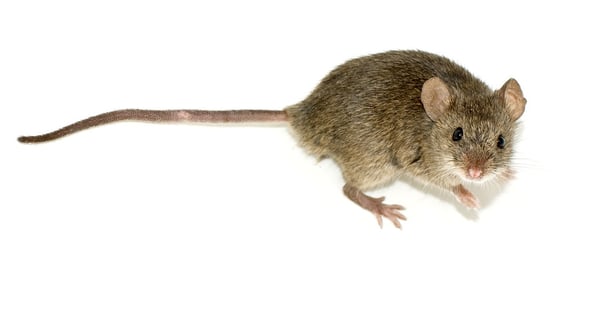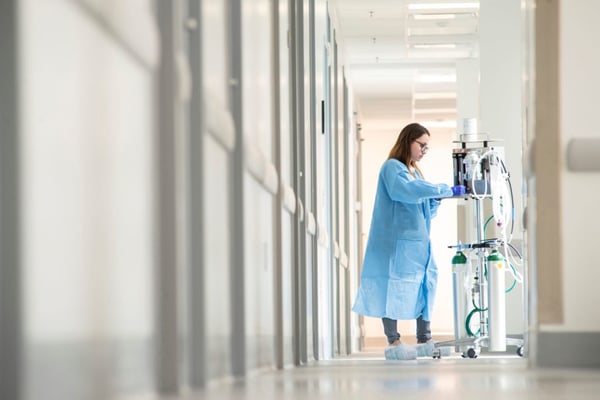A vivarium service houses and cares for animals for biomedical research.
On the long road that is a biotech or medtech startup’s path to developing an FDA-approved drug, therapeutic, or device, there are many hurdles. From finding lab space to hiring staff, challenges abound, but none so seemingly daunting as conducting animal studies. In preparation to submit an Investigational New Drug (IND) or Premarket Approval (PMA) application to the Food and Drug Administration (FDA), in vivo animal testing is generally required. Furthermore, this testing must be completed in compliance with Good Laboratory Practices (GLP), which help to ensure the reliability of the data. Building a vivarium is far outside the abilities of most startup founders. It also requires much more capital expenditure than the average pre-market biotech or medtech startup can handle. Therefore, companies turn to vivarium services.
A vivarium service houses and cares for animals for biomedical research. Most such services also perform the animal studies on behalf of their customers and offer analytical services (like on-site flow cytometry) that have to be performed in proximity to the sample collection site. Vivarium services are a type of CRO (contract research organization) and as such, do not generally take any ownership of intellectual property involved in the work they are contracted to do. These service providers allow small companies to conduct their animal studies without needing to have access to their own vivarium.

Mus musculus, or the mouse species commonly used in biomedical research.
Vivarium services most commonly use mice as their model system, similarly to academic research. However, vivarium services may also offer other animal models such as rats, pigs, dogs, cats, and cows, among others. This allows companies to test their technologies in the system that will best approximate the human disease/disorder/condition they are trying to address. Additionally, some vivarium services have offerings such as in vitro studies, consulting services, and regulatory assistance. These additional services help companies by lessening the administrative burden that arises when working with each new CRO.
In general, many companies like to work with local service providers so they can easily conduct in-person meetings. Working with a vivarium service is usually a large expenditure for a startup, so in-person meetings may be desirable to ensure clear communication. However, some very early stage biotech and medtech companies may need to develop specialized procedures that vivarium service technicians do not know how to perform. For these clients, physical access to the vivarium is essential. Luckily, some vivarium services allow their clients’ scientists to come on-site to carry out studies themselves. In this scenario, location is even more important as a scientist may need to visit the site repeatedly over the course of the study. Some procedures could even require multiple visits in one day, so proximity to a client's facility is important.
BATTS Incubator Labs (BATTS) is located in Northridge in the San Fernando Valley. It has long been the only vivarium service in the greater Los Angeles area. They have 18,000 square feet of vivarium and support space where they conduct preclinical animal studies on a contract basis. BATTS only allows its own staff to conduct animal work in their space, which they maintain at a full GLP level (though they can conduct non-GLP studies as well).
A unique feature of BATTS is that they also allow biotech companies to incubate within their space. They have a selection of basic lab equipment, lab space, and coworking office space. They incubate companies in the areas of synthetic biology, digital health media, and biopharmaceutical drug and assay development. By incubating at BATTS and utilizing their vivarium services, a startup may be better able to keep an open line of communication regarding their animal studies.
BTS Research (BTS) opened in 2001 in San Diego. Their services include in vitro and in vivo studies, with the goal of helping their clients prepare for IND submission. BTS is AAALAC accredited and has a full catalog of services they are able to perform. They also list their many mouse models, cell lines, and other animal models such as swine. They advertise pharmacological services, toxicology services, medical devices, in vitro services, IND process, disease models, custom services, and housing vivarium space. BTS staff have experience in project management, including managing multiple projects at once. They also are able to assist in regulatory compliance, which can become costly to manage.
BTS promotes themselves as a strategic partner, as their broad range of services allow companies to outsource many parts of a project to them--not just the animal work. This can allow for a more streamlined and efficient set of studies. Having “successfully executed thousands of efficacy, pharmacokinetic and toxicology studies,” BTS is one of the larger and more experienced vivarium services in Southern California.
Incorporated in 2001, Behavioral Pharma is located in La Jolla. They have an internal IACUC and OLAW-assurance. Although they provide services to the academic, neuroscience, biotech and pharmacy industries, Behavioral Pharma specializes in neuroscience research. Their team collectively has over 50 years of neuropharmacology experience. Behavioral Pharma’s core services include anxiolytic models, antipsychotic models, drug abuse liability models, analgesia models, cognition models, toxicology, and pharmacokinetics.
Behavioral Pharma advertises their accessibility during the course of testing, including regular updates from their team. They suggest this is a benefit of working with a smaller vivarium service as opposed to a large CRO. They indeed have a relatively compact footprint at just 3,000 square feet of lab space. Although they are smaller than the other vivarium services on our list, Behavioral Pharma has worked with clients around the world.
Crown Bioscience (Crown Bio), opened in 2006 and has grown into a global company. They have facilities in the UK, China, and Taiwan, in addition to US locations in California, Massachusetts, and Louisiana. They provide both in vitro and in vivo testing services, and pride themselves on their preclinical efficacy models. Crown Bio's most prominent offerings are their "Translational Platforms for oncology, inflammation and cardiovascular and metabolic disease." For oncology, Crown Bio offers ex vivo services such as 3D assays and tumor microarrays in addition to their in vitro and in vivo testing. They also have a selection of model systems, including cell line derived xenograft, HSC and PBMC humanized, human target knock-in, patient-derived xenograft, syngeneic, and tumor homograft.
Crown Bio's mission mentions completing projects in a cost-effective manner, which is especially important for start-ups who are looking to spend their money wisely. A unique feature of Crown Bio is their vision to complete testing of "1,000 drugs in 10,000" patient-derived xenograft models. Their focus on patient-derived xenograft models suggests that clients who require this type of testing will be well-aligned with Crown Bio.
Though their business model is not focused on vivarium services, universities and research institutes do have sometimes multiple vivaria, complete with veterinary staff, IACUCs, and other support services. Therefore, it can be highly attractive to a small biotech or medtech company to consider utilizing a university’s vivarium. However, universities have varying rules in regards to outside organizations utilizing vivarium space. Most often, companies must have a collaboration with a faculty member. Furthermore, that faculty member must mediate the interaction between the company and the vivarium. There are many pros and cons to this route, including differences in pricing and the relative ease of meeting deadlines.
Anecdotally, two universities/research institutes in the Southern California region that are known to offer vivarium services to startups are The Lundquist Institute in Torrance, CA, and Western University of Health Sciences in Pomona, CA. Neither organization advertises their vivarium services directly, but we have known companies to successfully partner with these groups.

CRADL Worker in South San Francisco
Building infrastructure is often expensive, time-consuming, and may not be the right approach when looking to conduct early discovery work. The CRADL™ South San Francisco offers turnkey vivarium rental space for emerging or well-established biotech and pharmaceutical companies, as well as academic institutions looking to expand vivarium space without a cost-prohibitive build.
CRADL combines modern vivarium space with industry-leading expertise in animal husbandry, vivarium management and IACUC oversight teams to ensure you have what you need to achieve your research milestones on time and on budget. Clients immediately gain access to supplemental equipment and technical services, and our expert staff are on hand to customize a program to your specific requirements.
The vivarium services in Southern California that we have outlined here range widely in their offerings, size, and specializations. There are definite areas of overlap, such as many of these providers offering toxicology and pharmacokinetic studies. The FDA commonly requires these in order to get approval for clinical trials. With such a variety of providers, local biotech and medtech startups can ideally work with a local vivarium service. However, the greater Southern California region is still relatively underserved in terms of the number of vivarium services. We are hopeful that the increasing notoriety of startup biotech and medtech companies in Orange, Los Angeles, Ventura, and Riverside Counties will attract additional vivarium services to our region. It is also possible that we missed some! If so, we would love to hear from you in the comment section below.
If you are in the market for a vivarium service, we hope this list is helpful. For advice on how to choose the right vivarium service for you, read our recent blog post on choosing the right CRO. To best manage the vivarium service you choose, see our previous blog post on 5 tips for managing CRO collaborations.
Revised 11/17/2020
Download The Ultimate Guide to Wet Lab Incubators in Southern California, a handbook to assist life science start-ups through the entire decision-making process to find wet lab space.
Download Now